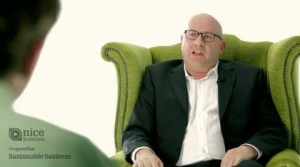Just recently, there was a very interesting article by Maurice Biriotti (founder and chief executive of SHM) in the Guardian about how literature and the humanities can instruct and aid our methods of conducting business. The hardest lesson to learn and the rarest to find in a textbook or a classroom is how to deal with people. People are ever-changing, unpredictable, and extremely variable in temperament and personality. There’s no step-by-step process for dealing with them or a one-solution-fits all. But that’s where exposure to literature and the humanities can come in handy. Reading can open your mind and allow for a more flexible worldview. It offers a unique vantage point into the perspective and motives of others.
When it comes to business, there are those things we can measure – stock fluctuations, budgets, etc. – and there are those elements that are complex and dynamic, like emotions, which are open to interpretation. Biriotti suggests in his article (and interview) that one can read literature to help understand these non-static elements of business. His recommendations: read Hamlet to learn about ‘complexity of decisiveness in business’, Ovid’s Metamorphoses to understand change, and Sophocles’ to open your mind to different sides of an issue. These books touch on concepts and ideas that traditional business texts cannot get to – the core of human complexity, the nature of the human condition.
Furthermore, with regards to business, particularly sustainable business, having not only an awareness of others but an awareness of the consequences of your actions is essential when making decisions. Literature and the humanities invite the reader to think critically in a way that flow charts and management theories do not permit. By allowing for decision processes to include factors such as environmental impact, companies become more human. They come closer to merging philosophy and science for the betterment of society and the world we live in.
Read more about what Biriotti has to say on the subject here.

